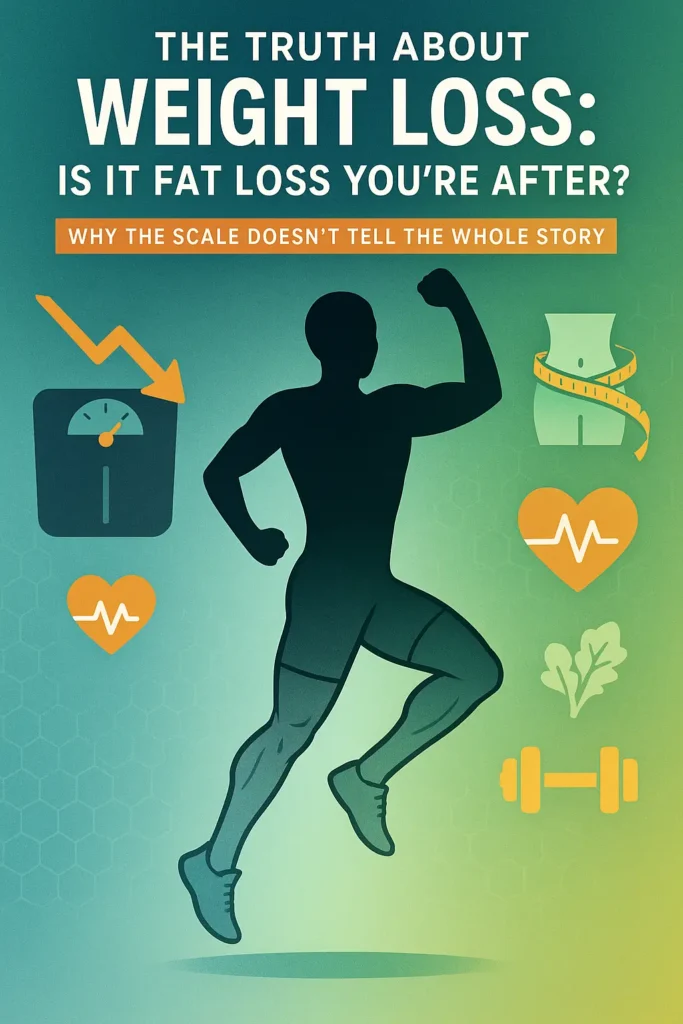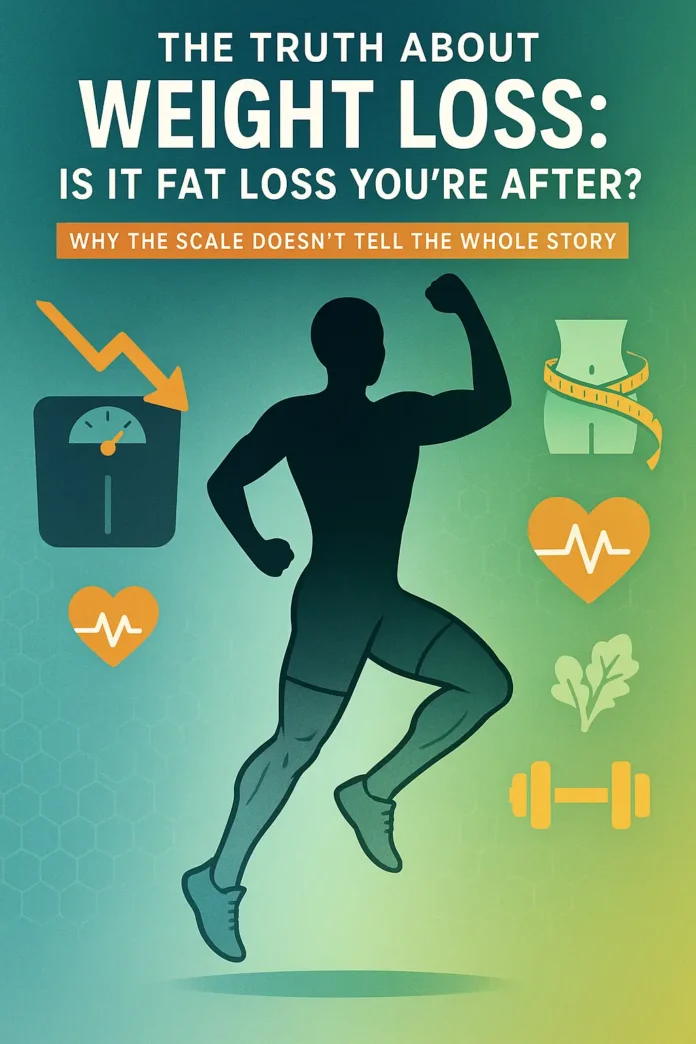In today’s world, many people strive to be in peak physical condition, and weight is often seen as a key indicator of how fit we are. Countless individuals commit to rigorous diets and lifestyle changes to shed pounds, hoping that the number on the scale will reflect their hard work. But the truth is, weight loss doesn’t necessarily equate to better health, and it’s important to recognize the distinction between losing weight and losing fat.
While weight loss is commonly associated with improved health, it’s essential to understand that these two concepts are not the same. Weight loss can involve the reduction of fat, muscle, water, and other body components. So, why is it so crucial to focus on fat loss rather than weight loss?
Tata 1mg’s Weight Management Program is a great place to start if you want to achieve a healthier body and manage lifestyle diseases through sustainable fat loss.
Many diet plans and fitness regimens focus on rapid weight loss, but what they often overlook is the importance of fat loss. Understanding this difference is key to achieving lasting health benefits. Let’s dive deeper into the science behind weight loss and why focusing on fat loss is the smarter approach.

What is Weight Loss?
Weight loss refers to the overall decrease in body weight, which includes not just fat, but also muscle mass, water, and other bodily fluids. When you step on the scale, you’re not just measuring fat—you’re measuring your entire body composition, which can fluctuate throughout the day based on factors like hydration, digestion, and glycogen storage. Because of these fluctuations, relying on body weight alone can be misleading when tracking your health progress.
Weight loss can have benefits for people dealing with obesity, but it’s important to note that not all weight loss is equal. When the body faces a significant reduction in calories, it often taps into readily available energy sources, such as muscle and water, before burning stored fat.
What is Fat Loss?
Fat loss, on the other hand, refers specifically to the reduction of stored fat in the body. This fat serves as an energy reserve, and too much of it can lead to various health problems, such as metabolic issues, heart disease, and diabetes. Reducing body fat can significantly improve physical appearance, metabolic health, and overall well-being. The key to better health is not just losing weight, but losing the right kind of weight—fat, not muscle.
Checkout How to Choose the Best Air Purifier for Your Home: A Complete Guide for 2025
Why is This Difference So Important?
Losing weight without losing fat can result in muscle and water loss, which could harm your health in the long run. Losing muscle mass, for example, can weaken the body, slow metabolism, and make it harder to maintain a healthy weight. On the other hand, losing fat can improve body composition, enhance metabolic function, and reduce the risk of chronic diseases.
Crash diets and extreme weight loss methods often result in the loss of muscle rather than fat, making it difficult to maintain long-term results. That’s why it’s crucial to understand the difference between weight loss and fat loss, and to prioritize the latter for sustained health improvements.
The Downside of Quick Weight Loss Methods
In today’s world of instant gratification, many people turn to rapid weight loss programs. These programs promise quick results, but often at the cost of muscle and water loss instead of fat loss. When these diets are discontinued, most individuals regain the weight they lost—and sometimes even more.
Why does this happen?
- Muscle Loss: The body tends to break down muscle tissue for energy before fat, especially when calorie intake is severely restricted.
- Water Loss: Low-carb diets can cause a quick drop in weight due to the release of water as glycogen stores deplete, not because of fat loss.
- Fat Cell Shrinking: While fat cells shrink with fat loss, they don’t disappear. This means that even after losing fat, your body can easily gain weight again in the future.
How to Ensure You’re Losing Fat, Not Just Weight
To make sure you’re losing fat, not muscle, here are some key strategies:
- Prioritize Protein: Protein is essential for maintaining muscle mass. Aim for 0.8 grams of protein per kilogram of body weight to preserve muscle and fuel fat loss.
- Strength Training: While cardio is great for burning calories, strength training helps retain muscle mass while shedding fat. Aim for 3-4 sessions of resistance training per week.
- Avoid Extreme Dieting: Extreme calorie cuts can lead to muscle loss and a slower metabolism, making fat gain more likely once you return to normal eating. Instead, aim for a moderate calorie deficit of 300-500 calories per day.
- Track More Than Just the Scale: Monitor your body fat percentage, take progress photos, and measure your waistline to get a clearer picture of your fat loss journey.
- Aim for Slow, Steady Progress: Sustainable fat loss happens gradually. Avoid the temptation of rapid weight loss programs that promise quick results but often lead to muscle loss and eventual weight regain.
Checkout Control High Blood Sugar Fast with These 8 Doctor Recommended Strategies
Conclusion
Weight loss and fat loss are not the same thing, and focusing solely on the scale can give you an incomplete picture of your health. Rapid weight loss methods often lead to muscle and water loss, which can hurt your long-term health. The best approach to achieving lasting fat loss is to prioritize muscle preservation, maintain a balanced diet, and focus on gradual, sustainable progress.
By following these principles, you can lose fat in a healthy way, increase your metabolism, and prevent the yo-yo effect of gaining weight back. Focus on a holistic approach—exercise, proper nutrition, and lifestyle changes—rather than quick fixes.
FAQs
A balanced diet with a moderate calorie deficit works best. Diets like the Mediterranean, high-protein, and calorie-deficit plans, when combined with exercise, can help you lose weight effectively.
Eggs, leafy greens, lean proteins (chicken, fish), whole grains (quinoa, brown rice), nuts/seeds (almonds, chia), and berries (blueberries, strawberries).
Focus on portion control, increase protein and fiber intake, stay hydrated, exercise regularly, manage stress, and ensure quality sleep.
Lemon water, green tea, apple cider vinegar water, jeera water, and ginger tea can aid digestion and promote fat burning.
Mix 1-2 tbsp of apple cider vinegar with a glass of warm water before meals to boost digestion and suppress appetite.
Jump rope, running, strength training, cycling, HIIT workouts, and swimming are all excellent choices for burning calories and building muscle.
Yes, in moderation. Peanut butter is high in protein and healthy fats, which can help keep you full, but be mindful of portion sizes.
Yes, oats are high in fiber, stabilize blood sugar, and help keep you full longer, making them an excellent choice for a weight-loss diet.
By taking a more informed approach to fat loss, you can achieve better, longer-lasting results for your body and health.
References
- Medical News Today. Weight Loss vs. Fat Loss: What’s the Difference and How to Maintain Muscle? Medical News Today. Available online: https://www.medicalnewstoday.com/articles/weight-loss-vs-fat-loss#losing-fat-and-gaining-muscle
- Harvard Health Publishing. The Risks of Rapid Weight Loss. Harvard Health. Available online: https://www.health.harvard.edu/staying-healthy/the-risks-of-rapid-weight-loss
- Harvard Health Publishing. Calorie Counting Made Easy. Harvard Health. Available online: https://www.health.harvard.edu/staying-healthy/calorie-counting-made-easy


